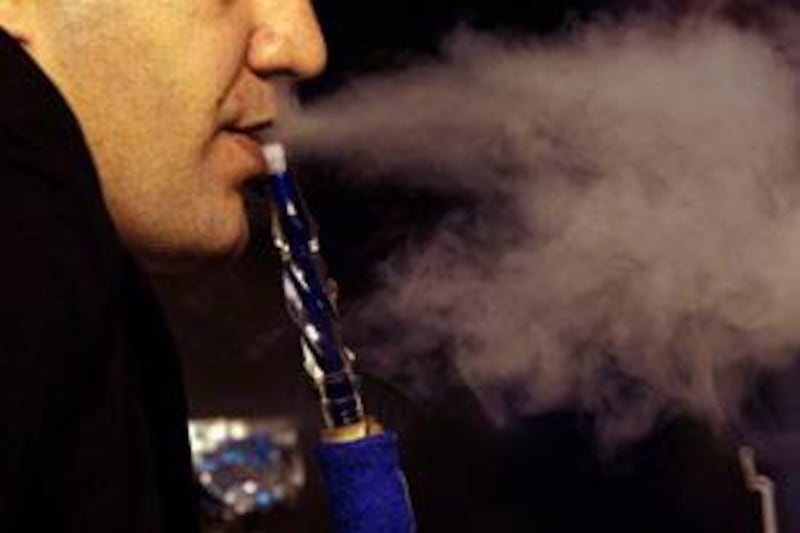ABU DHABI // The UAE needs a national smoking ban, for the sake of young people's health - and soon, several leading doctors have said. "We need legislation, education and taxation" on tobacco products, said Dr Wael al Mahmeed, head of the Emirates Cardiac Society.
"If the price is increased it would cut the number of very young smokers. "There is evidence which links the risk of heart attack to the amount of tobacco someone smokes, so stopping smoking at any time will reduce the risk." A federal law banning smoking in public places was drafted in 2006 by the Ministry of Health, but has yet to be implemented. Multiple studies in the US and Europe show that a ban on smoking in public places reduced the incidence of smoking and smoking-related diseases, said Dr al Mahmeed.
Meanwhile health authorities are spending significant amounts of their public health budgets on anti-tobacco campaigns, specifically targeting schoolchildren and young people. Smoking cessation clinics to encourage people to quit have also been introduced nationwide and individual municipalities have introduced their own bans. According to a 2009 World Health Organisation (WHO) report, more than a quarter of men in the UAE smoke compared with just 2.6 per cent of women.
However the figures for the younger generation were more worrying. The report said 13.2 per cent of girls and 25.2 per cent of boys ages 13 to 15 smoke. Deaths from cancer in the region are predicted to almost triple over the next 10 years, another WHO report, produced by the Eastern Mediterranean regional office, said this year. Increased smoking and a young population were cited as two of the reasons.
The median age of the UAE population is about 30 and Dr al Mahmeed said if the incidence of smoking is not reduced there will be a dramatic increase in lung disorders and coronary diseases in 20 or 30 years. A pack of 20 cigarettes in the UAE is around six times cheaper than in the UK, where it would cost about Dh35. Dr al Mahmeed, who is also head of cardiology at Sheikh Khalifa Medical City in Abu Dhabi, said as well as the issue of cost, the UAE should use federal legislation as a basis for boosting smoking cessation services and awareness campaigns.
"The danger here is that more young people and more women are smoking. It is a fad, not a cultural or religious issue. It is important for measures to be put in place, such as a federal ban, which make it more difficult for people to smoke, especially young people." Dr Mohamed Jaloudi, head of oncology at Tawam Hospital in Al Ain, said the ban should be introduced on a federal level and the UAE should look elsewhere.
"It has been shown in other countries that a smoking ban in public places, in conjunction with anti-smoking campaigns, reduces the incidence of smoking," he said. Figures from around the world show that smoking bans in public places have had a positive effect. A year after smoking in public was outlawed in Scotland, studies showed that almost 50,000 people had attempted to quit. A report by the UK department of health stated that in the first year of the ban in England, 234,060 people stopped smoking - 22 per cent more than in the previous year.
munderwood@thenational.ae






